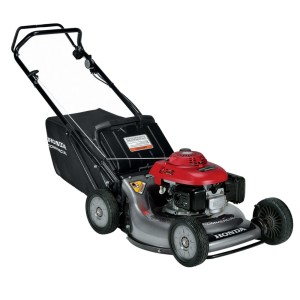 The Honda HRC mower is considered a major powerhouse for both residential landscapers and commercial enterprises that need to get a lot of work done very quickly. As with any mower, however, the HRC requires a certain level of both attention and precaution before it can be started and put to work. By following a few simple guidelines, owners will be able to stay safe, get the job done, and do it more quickly than with competing mowers currently on the market. Continue reading
The Honda HRC mower is considered a major powerhouse for both residential landscapers and commercial enterprises that need to get a lot of work done very quickly. As with any mower, however, the HRC requires a certain level of both attention and precaution before it can be started and put to work. By following a few simple guidelines, owners will be able to stay safe, get the job done, and do it more quickly than with competing mowers currently on the market. Continue reading
Author Archives: Admin
Troubleshooting Guide for Honda HRC Lawn Mowers
 Honda’s lawn mowers are widely regarded as some of the most durable and long-lasting in the industry, and the company’s HRC model is specifically touted as one of the best for large home lawns and commercial landscaping businesses. Even so, Honda’s lawn mowers occasional exhibit brief signs of trouble or difficulty that can be frustrating for any equipment operator. Often, these problems are very easy to fix and involve only a slight adjustment to the mower’s settings, gauges, or fluids. Before getting in touch with a local service department, be sure to confront each of the HRC mower’s most common issues with a few tests and fixes that will most likely get the mower back in operating condition. Continue reading
Honda’s lawn mowers are widely regarded as some of the most durable and long-lasting in the industry, and the company’s HRC model is specifically touted as one of the best for large home lawns and commercial landscaping businesses. Even so, Honda’s lawn mowers occasional exhibit brief signs of trouble or difficulty that can be frustrating for any equipment operator. Often, these problems are very easy to fix and involve only a slight adjustment to the mower’s settings, gauges, or fluids. Before getting in touch with a local service department, be sure to confront each of the HRC mower’s most common issues with a few tests and fixes that will most likely get the mower back in operating condition. Continue reading
How to Maintain a Honda HRC Lawn Mower
 How to Maintain a Honda HRC Lawn Mower Honda’s HRC lawn mowers are known as some of the best on the market, frequently used by those in commercial landscaping and even among traditional homeowners with larger lawns that need to be perfectly maintained. The HRC is also popular because of its reputation for durability even on tougher terrains and throughout years of intense landscaping and mowing work. Continue reading
How to Maintain a Honda HRC Lawn Mower Honda’s HRC lawn mowers are known as some of the best on the market, frequently used by those in commercial landscaping and even among traditional homeowners with larger lawns that need to be perfectly maintained. The HRC is also popular because of its reputation for durability even on tougher terrains and throughout years of intense landscaping and mowing work. Continue reading
Troubleshooting Guide for Honda HRS Lawn Mowers
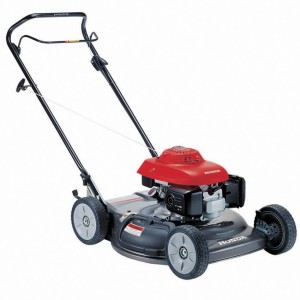 Honda’s HRS lawn mower is widely appreciated as one of the most durable on the market, but even this rock solid mower can sometimes suffer from a few problems that can cause headaches for operators. The good news is that many problems are very easy to fix, and they’re often the result of simple oversights or mistakes made when maintaining the mower or getting it ready for another big mowing job. By checking a few common areas of concern on the mower, owners can solve problems ranging from a mower that won’t start to one that doesn’t mow or bag properly after the engine is on. Continue reading
Honda’s HRS lawn mower is widely appreciated as one of the most durable on the market, but even this rock solid mower can sometimes suffer from a few problems that can cause headaches for operators. The good news is that many problems are very easy to fix, and they’re often the result of simple oversights or mistakes made when maintaining the mower or getting it ready for another big mowing job. By checking a few common areas of concern on the mower, owners can solve problems ranging from a mower that won’t start to one that doesn’t mow or bag properly after the engine is on. Continue reading
How to Operate a Honda HRS Lawn Mower
 For those homeowners new to the Honda HRS push mower, starting the equipment can seem pretty intimidating. After all, this is a relatively advanced walk behind mower that features self-propulsion, a throttle control, and other operator comforts that simply cannot be found on competing options. Getting acquainted with these controls will provide for a safer, more consistent mowing job overall. Here’s what operators need to know before getting started. Continue reading
For those homeowners new to the Honda HRS push mower, starting the equipment can seem pretty intimidating. After all, this is a relatively advanced walk behind mower that features self-propulsion, a throttle control, and other operator comforts that simply cannot be found on competing options. Getting acquainted with these controls will provide for a safer, more consistent mowing job overall. Here’s what operators need to know before getting started. Continue reading
How to Maintain a Honda HRS Lawn Mower
 When it comes to preventing major repairs or service that can take a lawn mower out of commission for a longer period of time, there is perhaps nothing more effective than a policy of attentive, regular maintenance throughout the spring and summer seasons. By following Honda’s recommended maintenance schedule, mower owners can ensure that their equipment is using high-quality parts that aren’t excessively worn or corroded, and they’ll be using fresh gasoline and oil that will keep moving parts in great condition for a longer period of time. Best of all, these maintenance procedures are easy to do and quick to perform, even for those equipment owners who are new to oil changes, blade inspections, and more. Continue reading
When it comes to preventing major repairs or service that can take a lawn mower out of commission for a longer period of time, there is perhaps nothing more effective than a policy of attentive, regular maintenance throughout the spring and summer seasons. By following Honda’s recommended maintenance schedule, mower owners can ensure that their equipment is using high-quality parts that aren’t excessively worn or corroded, and they’ll be using fresh gasoline and oil that will keep moving parts in great condition for a longer period of time. Best of all, these maintenance procedures are easy to do and quick to perform, even for those equipment owners who are new to oil changes, blade inspections, and more. Continue reading
Fuel System Maintenance for a Honda HHT Trimmer
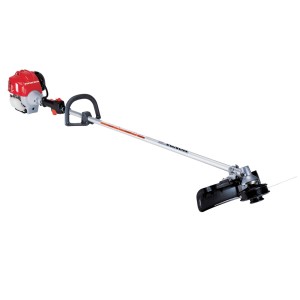 One of the best ways to ensure that Honda’s durable HHT trimmer enjoys a long useful life is to make sure that fuel is being used and stored in the proper way throughout the year. Whether it’s using the right fuel composition during the warmest months of the year, or properly storing fuel and tending to the trimmer’s needs during the so-called “off season,” Honda equipment owners should follow a few key recommendations and timelines in order to have the most efficient and long-lasting equipment possible. Continue reading
One of the best ways to ensure that Honda’s durable HHT trimmer enjoys a long useful life is to make sure that fuel is being used and stored in the proper way throughout the year. Whether it’s using the right fuel composition during the warmest months of the year, or properly storing fuel and tending to the trimmer’s needs during the so-called “off season,” Honda equipment owners should follow a few key recommendations and timelines in order to have the most efficient and long-lasting equipment possible. Continue reading
How to Maintain a Honda HHT Trimmer
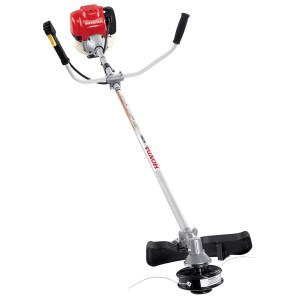 Honda’s HHT trimmer is one of the most powerful trimmers currently on the market for homeowners, as well as one of the most thoughtfully designed and executed. Even so, this powerful piece of equipment requires regular maintenance by homeowners in order to keep running efficiently and without the need for costly repairs over time. By following a few simple guidelines, HHT trimmer owners can make sure their equipment is working as efficiently and as powerfully as possible. Continue reading
Honda’s HHT trimmer is one of the most powerful trimmers currently on the market for homeowners, as well as one of the most thoughtfully designed and executed. Even so, this powerful piece of equipment requires regular maintenance by homeowners in order to keep running efficiently and without the need for costly repairs over time. By following a few simple guidelines, HHT trimmer owners can make sure their equipment is working as efficiently and as powerfully as possible. Continue reading
How to Operate Your Honda HHT Trimmer
 Honda’s HHT trimmer is one of the best options for homeowners that need to take back their lawn and surrounding areas from weeds and brush, but the equipment does come with a few unique concerns. Homeowners will need to learn how to stay safe during operation, and they’ll need to understand the HHT trimmer’s unique controls for optimal use. Along with learning how to start and stop the engine, this knowledge can make landscaping easier and trimmer operation much more straightforward. Continue reading
Honda’s HHT trimmer is one of the best options for homeowners that need to take back their lawn and surrounding areas from weeds and brush, but the equipment does come with a few unique concerns. Homeowners will need to learn how to stay safe during operation, and they’ll need to understand the HHT trimmer’s unique controls for optimal use. Along with learning how to start and stop the engine, this knowledge can make landscaping easier and trimmer operation much more straightforward. Continue reading
What is the Best Fuel for Honda Engines?
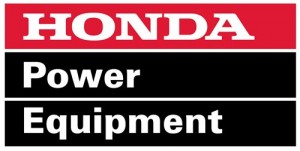 Many Honda engine buyers are armed with knowledge about regular maintenance, the frequency of oil changes required by their engines, and a whole series of troubleshooting routines designed to keep a high-performing engine working at the top of its game. One area of uncertainty, though, lies in the type of fuel that should be used by these engines. Many people feel that using premium-grade fuel will help the engine work better and last longer, while others are curious about ethanol levels and the stability of the engine when using various fuel grades and technologies. Though it might seem complicated at the outset, fueling a Honda engine is actually a rather simple procedure that is far simpler than the various fuel technologies being offered to consumers at gas stations today.
Many Honda engine buyers are armed with knowledge about regular maintenance, the frequency of oil changes required by their engines, and a whole series of troubleshooting routines designed to keep a high-performing engine working at the top of its game. One area of uncertainty, though, lies in the type of fuel that should be used by these engines. Many people feel that using premium-grade fuel will help the engine work better and last longer, while others are curious about ethanol levels and the stability of the engine when using various fuel grades and technologies. Though it might seem complicated at the outset, fueling a Honda engine is actually a rather simple procedure that is far simpler than the various fuel technologies being offered to consumers at gas stations today.
With So Many Options, Which Fuel is the Best Fit for Honda’s Engines?
A trip to the local gas station will typically reveal a number of fuel options and technologies, including everything from diesel fuel and premium-grade gasoline to special, company-specific formulations of fuel and even E85 ethanol options. This can be confusing even when filling up a car’s gas tank, let alone the tank of a Honda engine. Fortunately, Honda has developed its own guidelines for fueling up its various engines and keeping them operating at peak efficiency for as long as they continue to run.
Though Honda doesn’t recommend using a specific grade of gasoline, consumers can certainly depend on regular unleaded fuel to power their engine efficiently and without causing damage to its various moving parts. Premium fuel can certainly be used, but this added expense does not necessarily produce any tangible benefits in terms of efficiency, operation, or long-term maintenance concerns.
Honda notes that its engines are designed to run on fuel that consists of between 0 percent and 10 percent ethanol. Gasoline sold using the E85 level actually contains 15 percent ethanol and only 85 percent gasoline, meaning it’s not a great option for Honda’s engines. In fact, the company specifically advises against using E85 fuels in its engines across the board. The higher concentration of ethanol can actually harm the engine over the long-term, and it will contribute to significantly reduced performance overall.
Naturally, diesel fuels are not a good match for Honda’s engines unless specifically noted in the engine’s owner’s manual or product information. Traditional gasoline, generally with a very low concentration of ethanol, will produce the best results across the board.
Avoiding Fuel Problems: What to Know About Honda Engines and the Gas They Use
Though choosing the right type of gasoline is certainly important, Honda engine owners need to be mindful of gasoline storage and other considerations that will have an impact on performance over time. By following a few basic guidelines on a consistent basis, equipment owners will be able to get the most out of both their engine and the fuel that they’ve purchased for use in that engine.
1. Pay Attention to Fuel Additives
The number one way to experience gasoline problems is to simply not pay attention to the percentage of actual gasoline in the mix. Anything less than 90 percent gasoline will cause problems for Honda engines. That means only 10 percent of the fuel can be composed of ethanol, chemical additives, and engine cleaners.
2. Be Mindful of Fuel Storage and Age
Gasoline that is not being actively used in the engine should be stored in an approved container, and that container should be kept out of direct sunlight. Generally, fuel has a “shelf life” of about three months. If gasoline is not used within three months from when it was pumped into the gas container, it’s probably a good idea to dispose of that gasoline rather than using it in the engine. Similarly, gas that has been in the equipment for 30 days, without any use, should be disposed of using an approved container. New fuel should replace the old before the next engine use.
3. Regularly Clean the Air Filter
A clean air filter will ensure that the engine is operating at peak efficiency, but it will also prevent against the dreading non-starting engine that can afflict some buyers. Honda recommends checking the air filter with every use, or at least once per month, to avoid fuel and ignition problems.
For More on Honda Engines and Replacement Parts, Visit HondaLawnParts.com
Honda’s engines are among the most powerful and advanced on the market, which allows them to be used in commercial, residential, and even recreational settings. All of these engines, though, require regular maintenance and the occasional replacement part or service. For a full line of Honda OEM parts for every engine model, as well as a knowledgeable team of sales and support technicians, consumers looking into Honda’s engines should look no further than HondaLawnParts.com for all of their needs.
